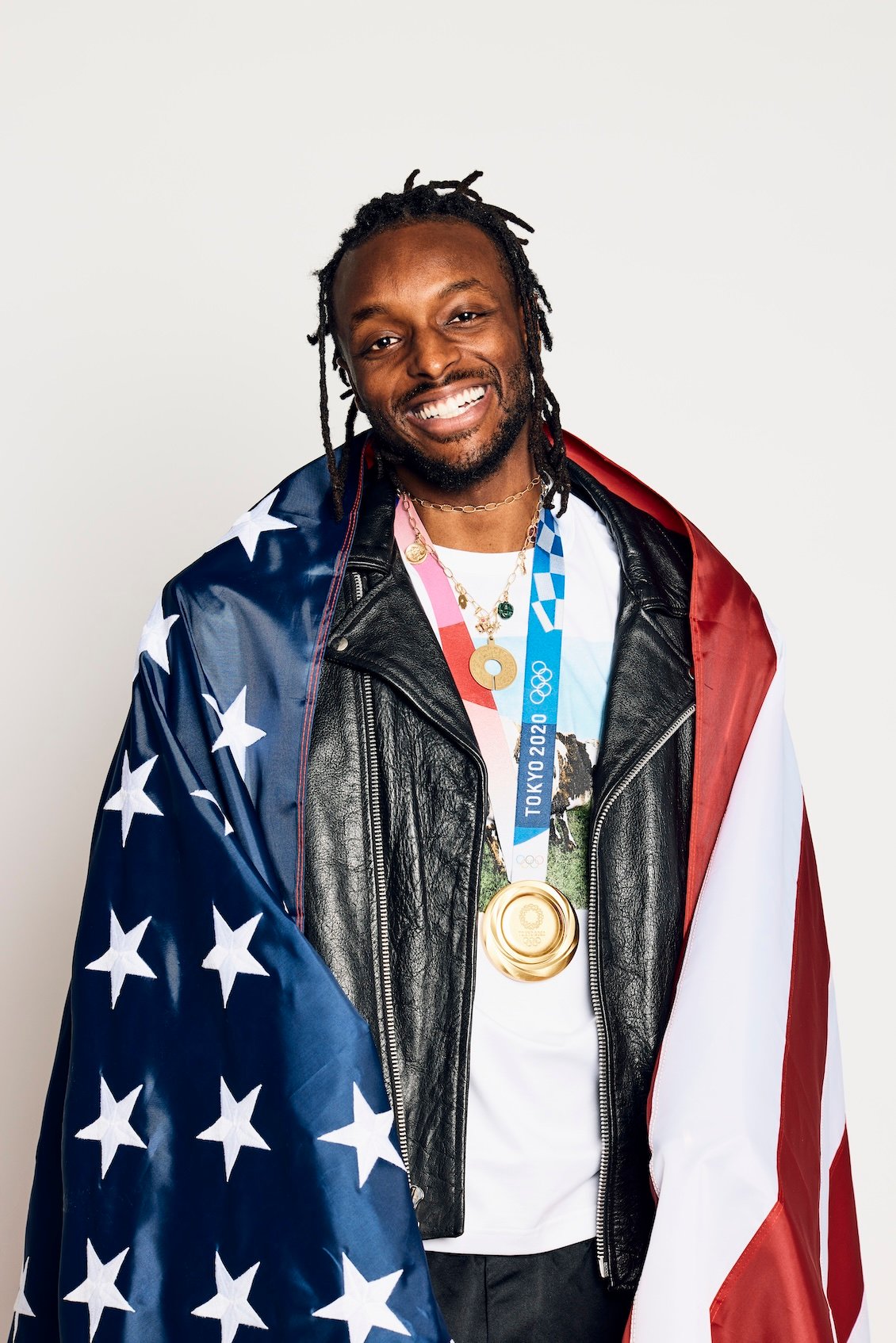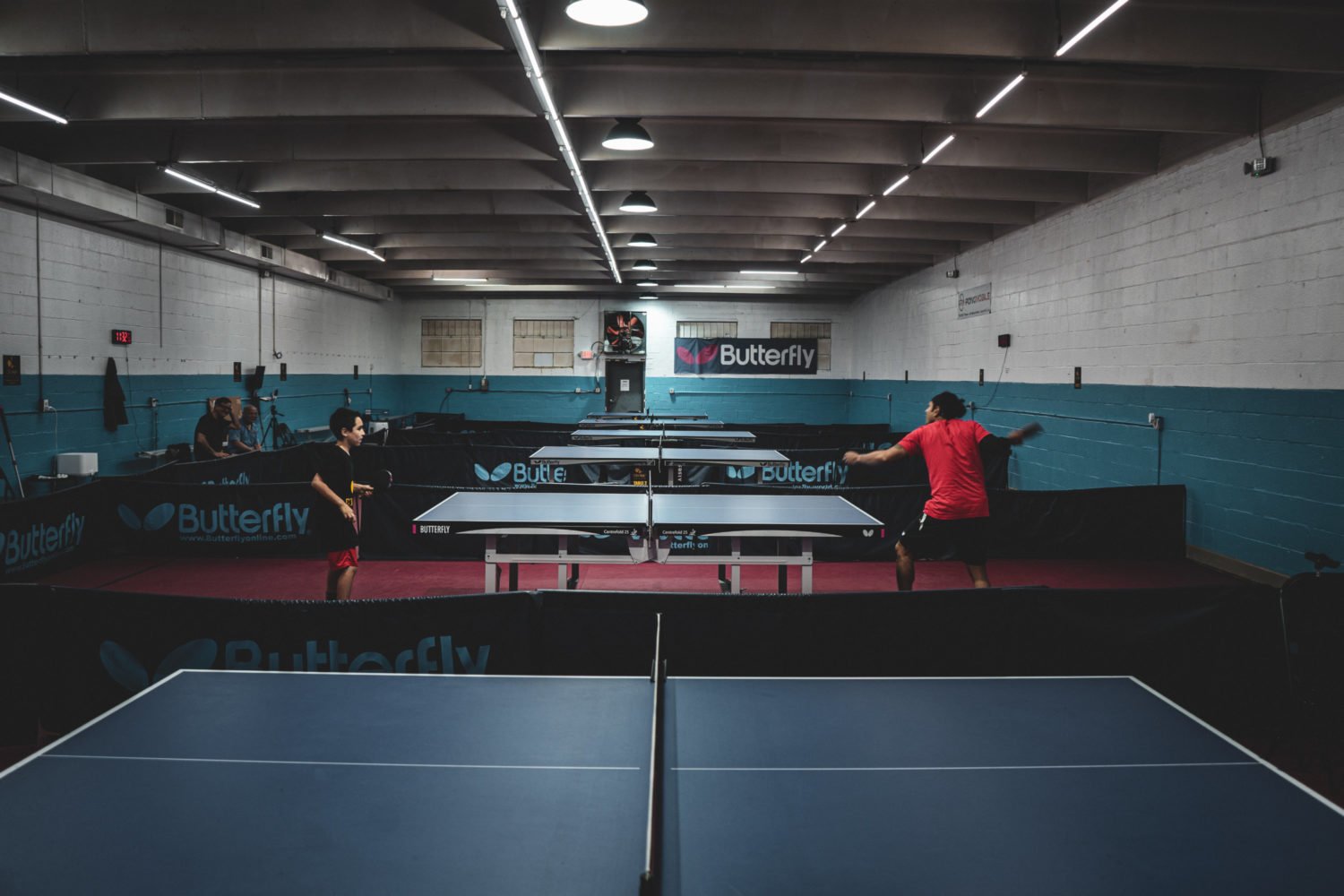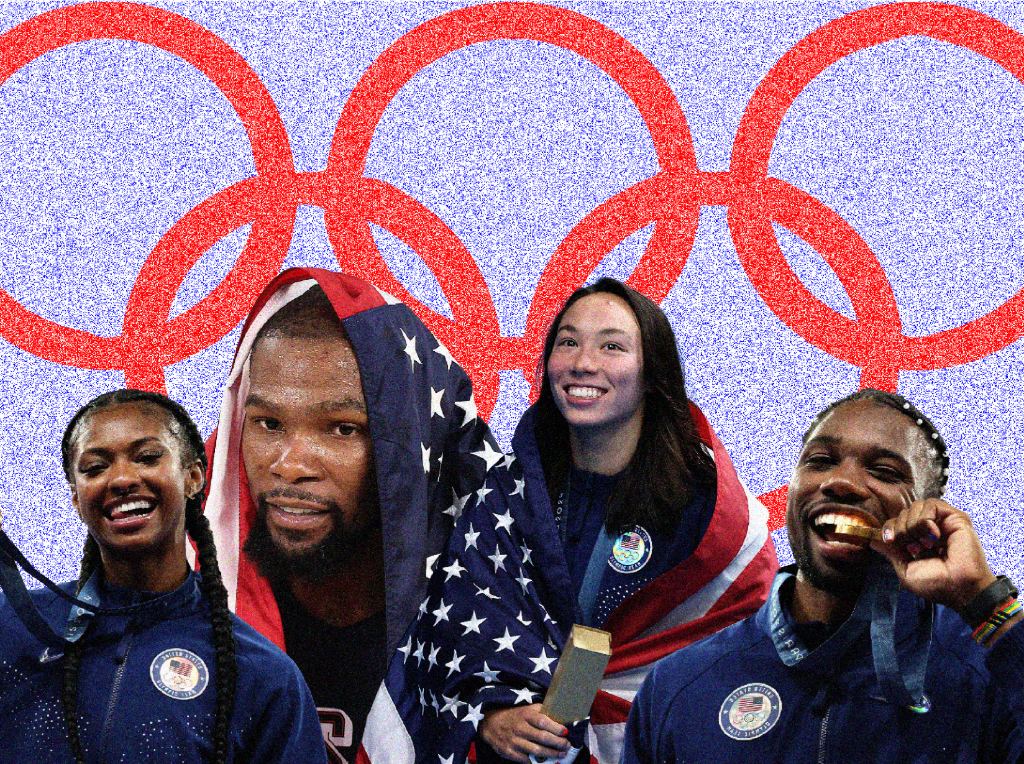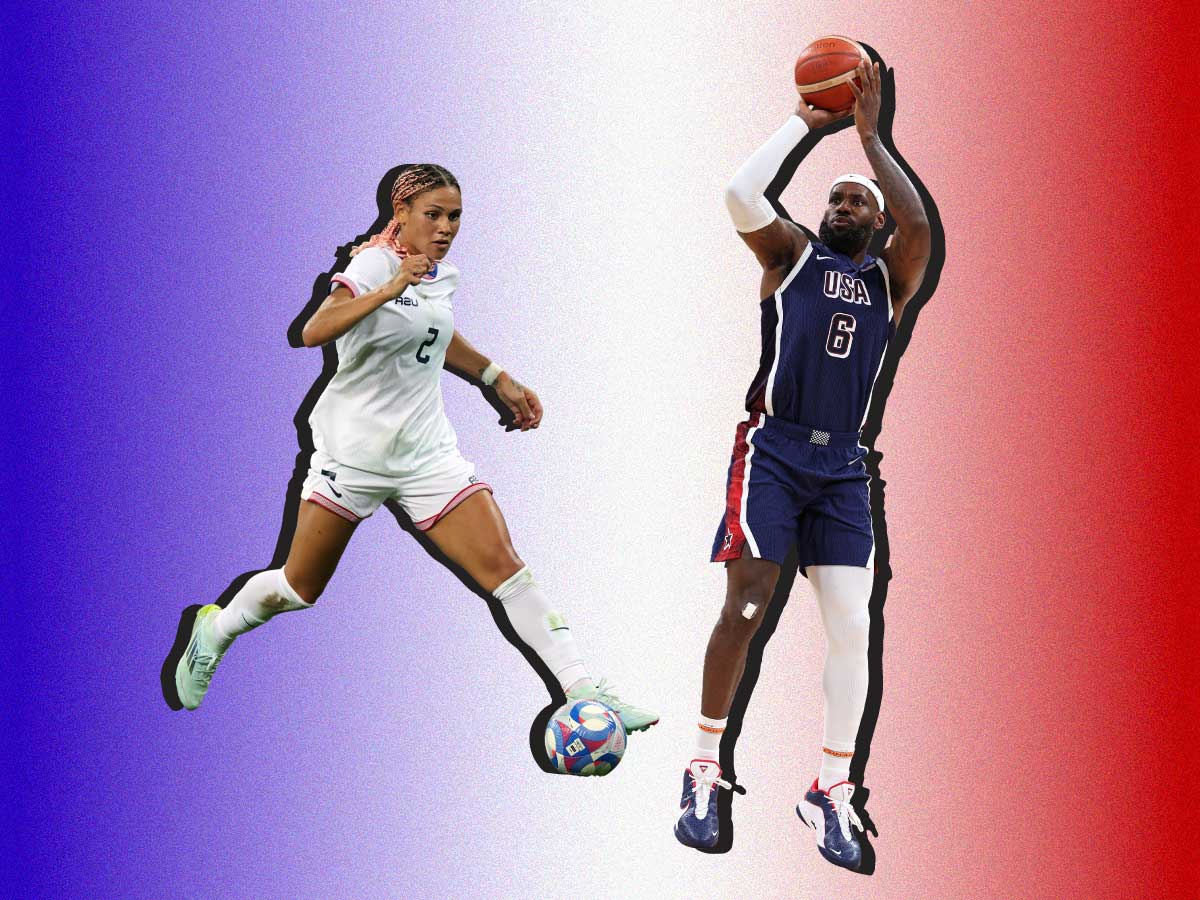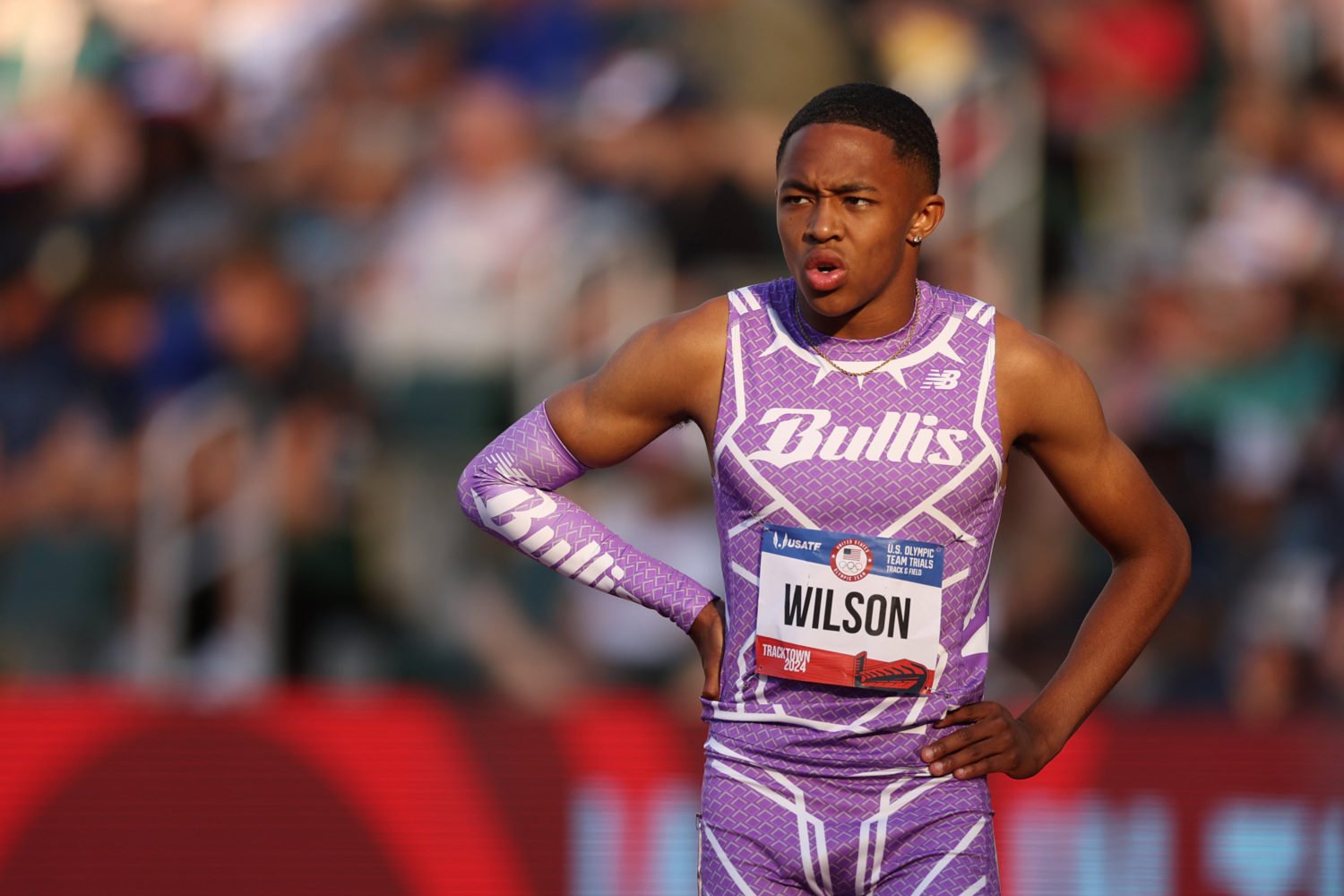Contents
Triple-jump world indoor champion Thea LaFond first came to Washington as a child, when her family relocated from New Jersey for her father’s job with the Department of Agriculture. “I have extremely fond memories of summers on the Mall, meeting him during his lunch break, popping in and out of Smithsonian museums,” LaFond says. “The area is a huge part of who I am and my story.”
LaFond and a number of other former Olympians and Paralympians from the DC area reached the peak of their sports to showcase their talents on the ultimate world stage—and some, like LaFond, will be returning to the Games in Paris this summer. But they also aren’t much different from the rest of us, living and working and groaning about traffic, all while enjoying the city’s charms.
Take Rudy Winkler. A native of upstate New York, the Paris-bound hammer thrower arrived in Washington less than two years ago. He already can rattle off a long list of favorite neighborhoods (Georgetown, Southwest Waterfront), museums (National Portrait Gallery, National Building Museum), and other attractions. “I’ve been getting into kites for some reason, so the [National Mall’s annual Blossom] Kite Festival was the perfect timing for that,” Winkler says.
Even for those whose careers have taken them away, the region frequently pulls them back. Boxer Troy Isley, who now trains out of Las Vegas, returns to DC after his fights, often gathering with his sizable extended family. “I meet, like, five new people every cookout,” he says. “Seeing all my cousins, all my great-aunts—they’re all proud of me that I stuck with it, so that keeps me going.”
While some of these Olympians and Paralympians earned medals, others endured disappointment. Still, they share a common connection to our city. “To be able to make the Olympic team was a surreal feeling,” basketball player Jerami Grant says, “knowing where I started.”
Jerami Grant
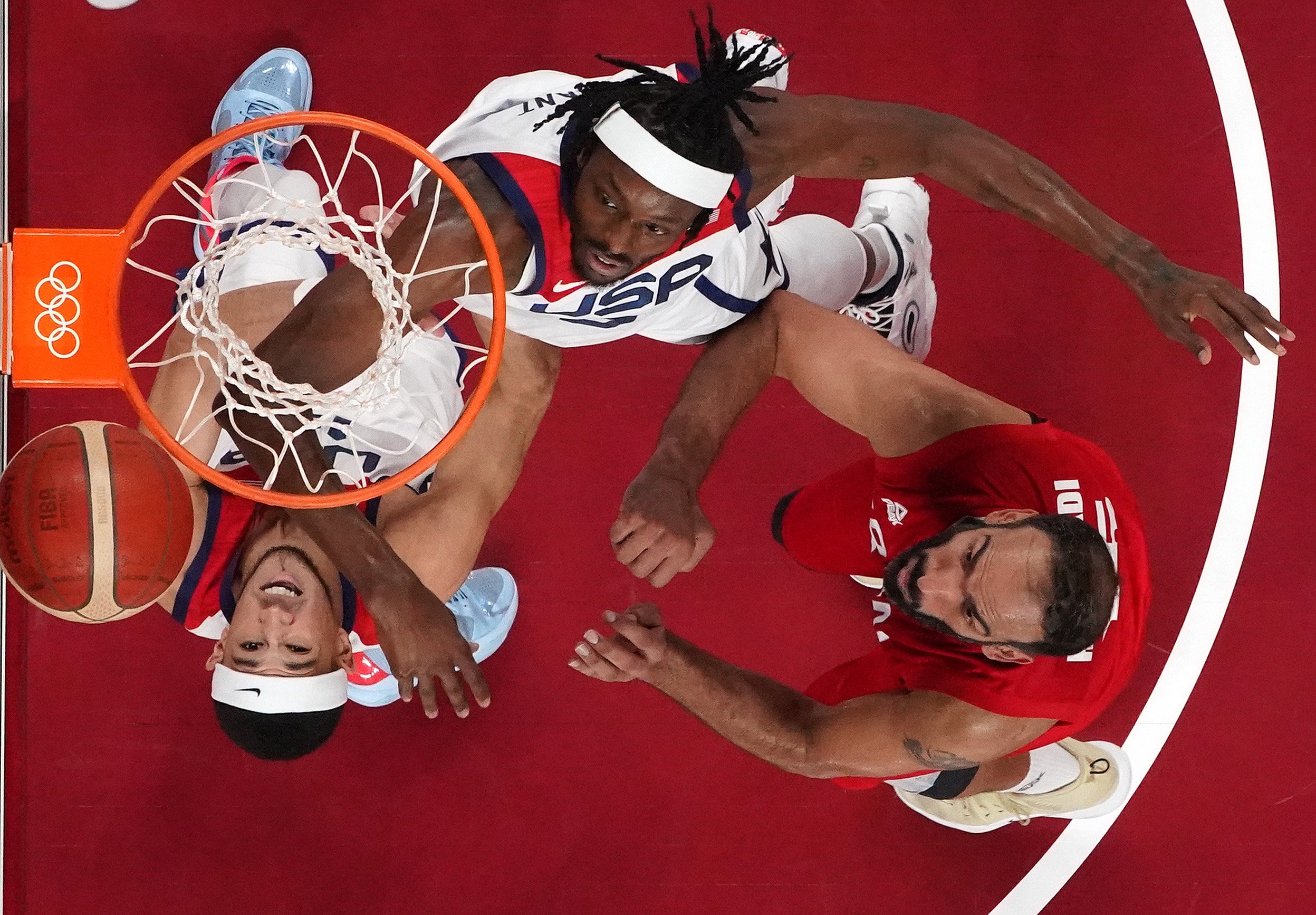
Basketball
2020 Tokyo Games
Soon after Jerami Grant won a gold medal with Team USA in the Tokyo Games, the veteran NBA forward headed home to show it off to family and friends. As he watched them pass around the hardware, marveling at its surprising heft, the true weight of his accomplishment sank in.
“Being from the DMV, to be able to bring that back is big,” Grant, 30, says. “It means a lot to me, but I think it means even more for my community. It wasn’t until I saw my mom and my brothers really excited that I was like, ‘Oh, yeah—I was a part of something that will last.’ ”
For Grant, a DeMatha graduate who recently finished his tenth professional season and his second with the Portland Trail Blazers, all roads return to his roots in Prince George’s County, where he still owns a house and lives each off-season. It’s why his Hour Generation Foundation offers tutoring programs, wellness walks, and Thanksgiving turkey drives for under-served people in the region. And it’s why Grant recently dipped into his nearly $110 million career earnings and made “a pretty big investment,” as he describes it, to become a minority owner of DC United.
“It’s every kid’s dream to be able to grow up and win a gold medal and make a bunch of money and give back to the community,” Grant says. “This is the cherry on top, to be able to have part ownership of a team in your area.”
Back to Top
Linda Miller
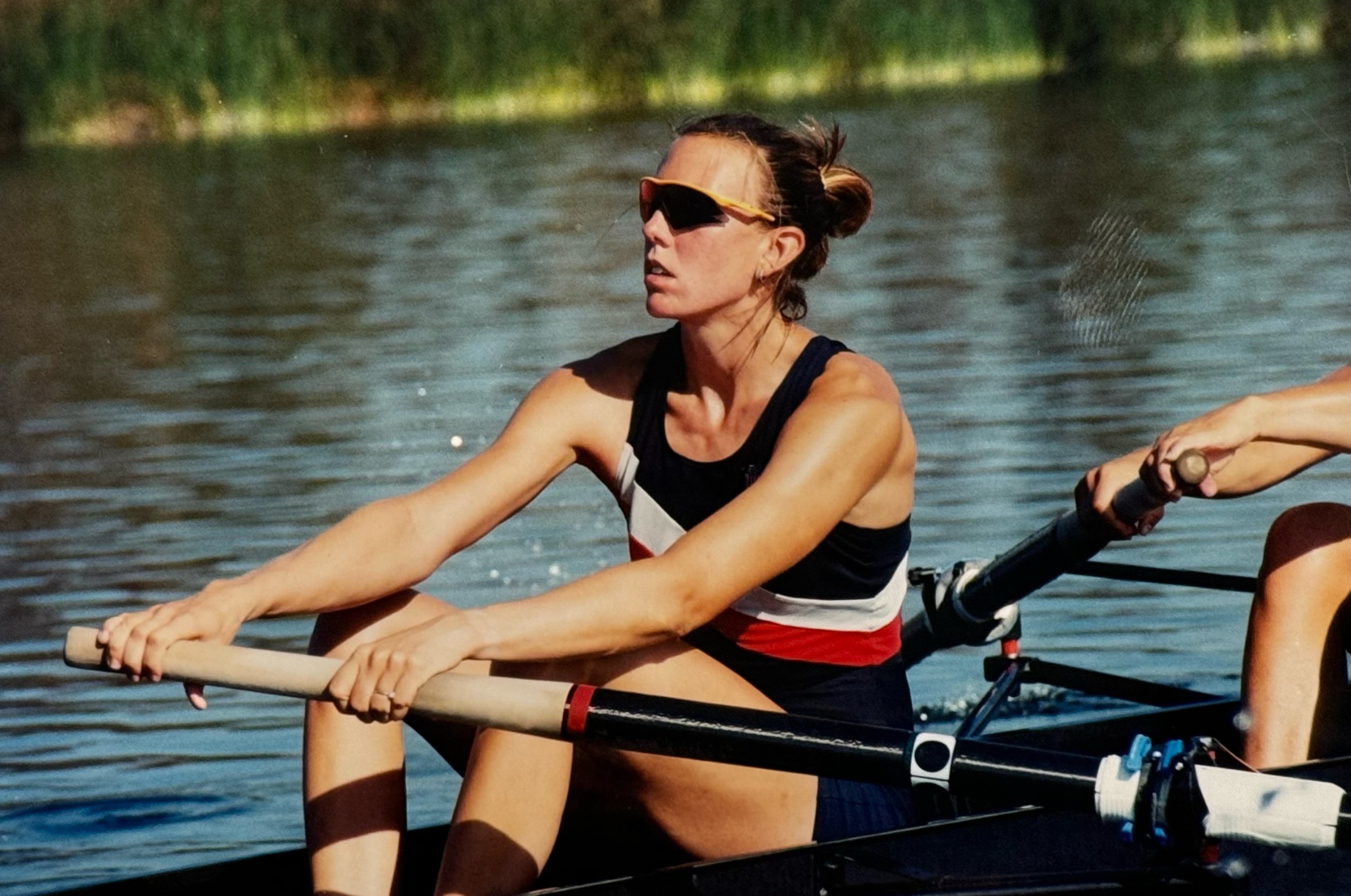
Rowing
2000 Sydney Games
Nearly a quarter century has passed since Linda Miller and the Team USA women’s eight boat placed sixth at the Sydney Olympics, yet she still can’t bring herself to watch the replay.
“Some people have said, ‘I saw your Olympic race,’ and I’m like, ‘Cool, don’t tell me about it,’ ” Miller, 51, says. “If we hadn’t been expecting to medal, I probably would have been happy and found it all very positive. But it was incredibly disappointing that we underperformed.”
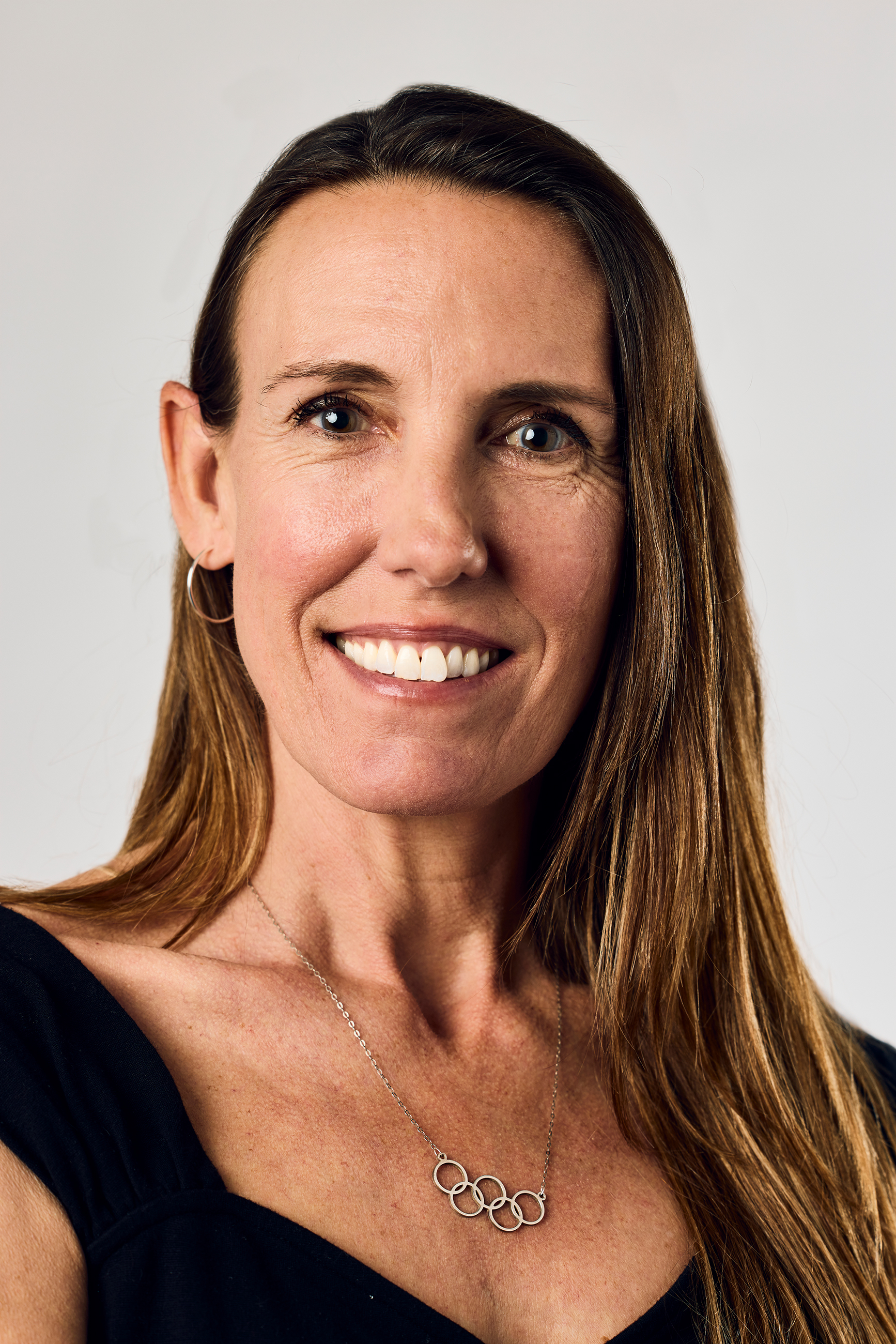
In the immediate after-math, Miller fully intended to return for the 2004 Athens Games and “get the medal I didn’t get.” The more she thought about it, though, the more she realized she was driven more by “avenging” her Olympic failure and less because “I love it and this is the thing I want to do most for the next four years.” So she decided to hang up her oars, pivoting to obtain her master’s in public policy at her undergraduate alma mater, George Washington University.
“Ironic that the US women’s eight won silver in Athens and gold in Beijing, London, and Rio,” Miller says with a chuckle. “I guess I just rowed in the wrong year.”
Over time, Miller also came to embrace the Olympic letdown as an “amazing opportunity” to help young athletes process their own defeats, whether it was the boys’ crew team that she coached at DC’s Jackson-Reed High School from 2001-2005 or, more recently, her son during his high school basketball career. “I would be able to talk to them about that feeling, because they knew I understood it better than anybody,” Miller says. “A medal is nice, people are impressed, it’s a thing that sits in your house. But it doesn’t provide a long-lasting way to connect with other humans the way this understanding does.”
These days, the life-long DC-area resident works as a fraud-prevention analyst, recently founding her own government consulting firm, and continues to row singles and doubles at Georgetown’s Potomac Boat Club, where Supreme Court justice Neil Gorsuch is also a member. The frustration of her sixth-place finish has faded, replaced by perspective and pride.
“My son wore this Olympic T-shirt that I got [in Sydney] until there were holes in it,” Miller says. “It’s hard to be cool to your teenage kid. But I can reliably be cool every four years.”
Back to Top
Chantae McMillan
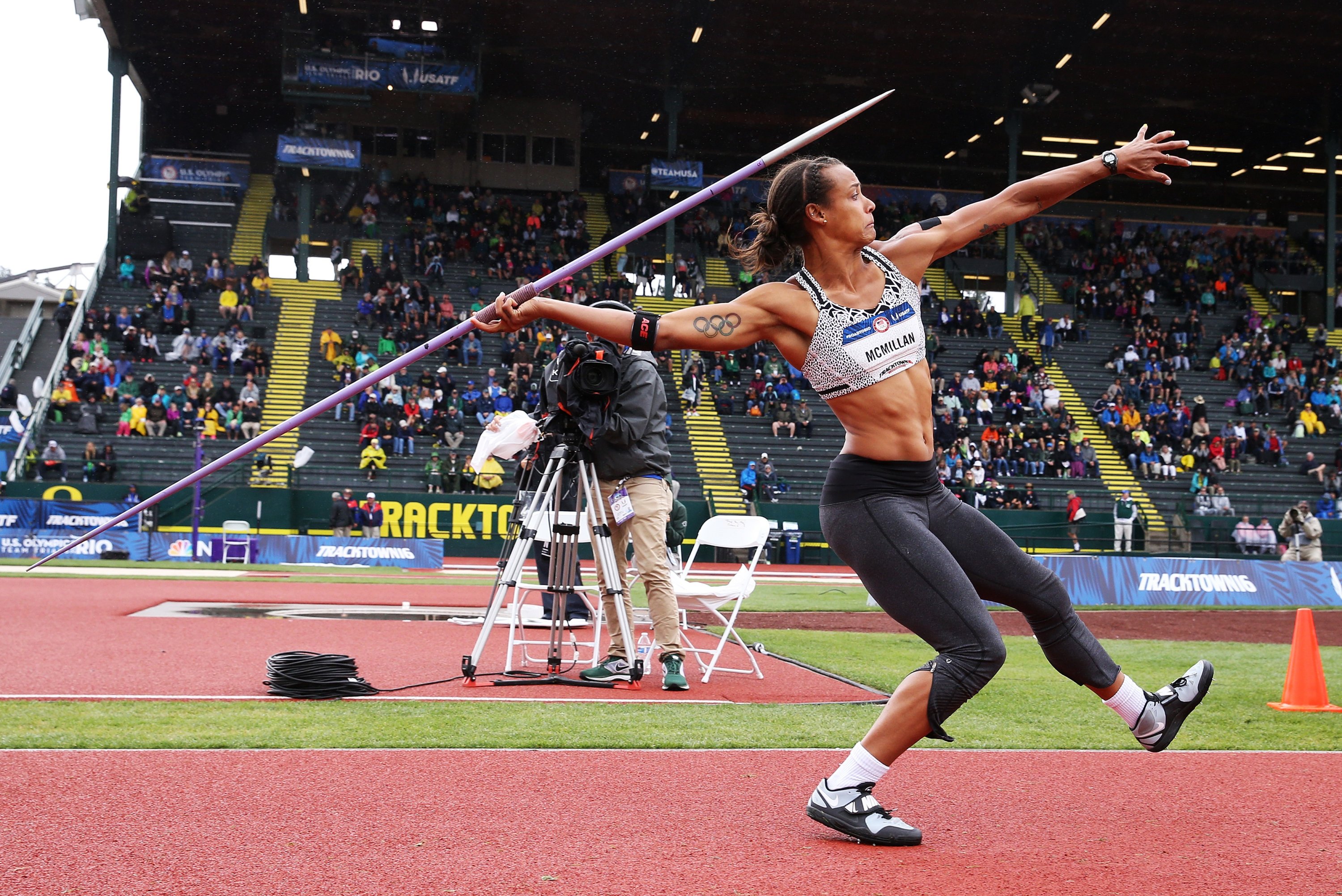
Track and Field
2012 London Games
Chantae McMillan characterizes her lone Olympic experience as an “unknown story.” Due to a sudden illness that struck right before the last event in the modern heptathlon at the London Games, she was unable to warm up for the 800-meter dash and finished in 27th place.
Four years later, she failed to qualify for a spot on Team USA for Rio, finishing fifth at the US track-and-field trials—yet came away with a feeling of fulfillment. “It was my best score ever, so it was an amazing moment,” McMillan, 36, says. “I thought my career was over, and I was happy with what I did.”
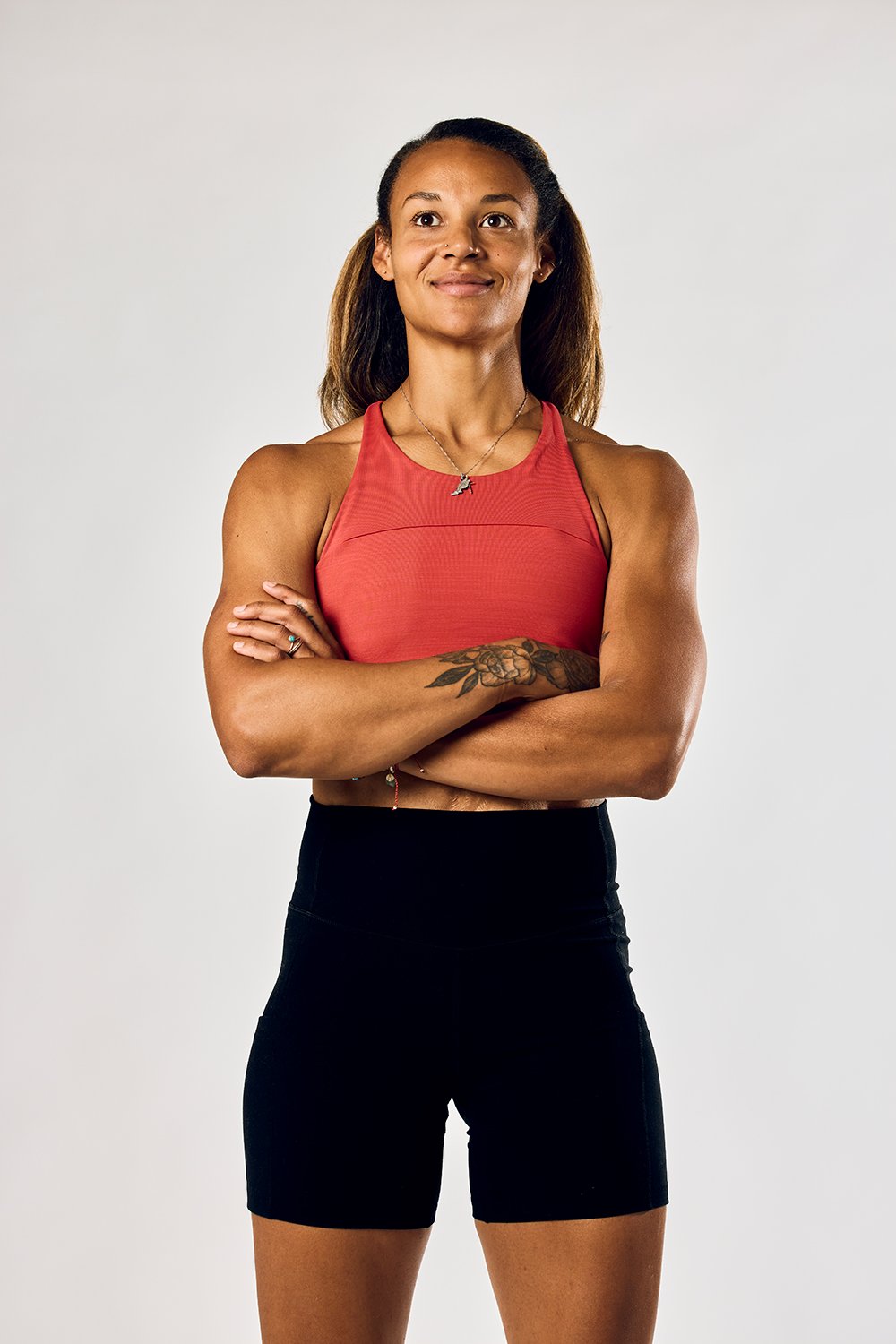
She never fully stepped away, narrowing her focus to just one of the heptathlon’s seven individual events and finishing eighth in javelin at the US trials before the Tokyo Games. Then last summer—seven years after McMillan last competed in the heptathlon at any meet—the stars aligned for a comeback when one of her former coaches got a job at the nearby University of Maryland. “I was like, ‘We have to see what’s left in the tank,’ ” she says.
Though her comeback attempt ultimately fell short of qualifying for the Paris Games, McMillan knows what she wants to do next: “I love the technical aspect of track and field. I want to coach, give back to kids.” At home, McMillan—whose husband, Devon Langhorst, works as a US Army helicopter pilot out of Fort Belvoir—raises two young sons. On training days, she drops the younger boy off with a sitter and often takes the older one with her.
“It’s six days a week, three to four hours of work daily, but some days it’s spread out because something’s happening with the kids,” she says. “It doesn’t sound that dramatic, but it’s hectic.”
Back to Top
Trevon Jenifer
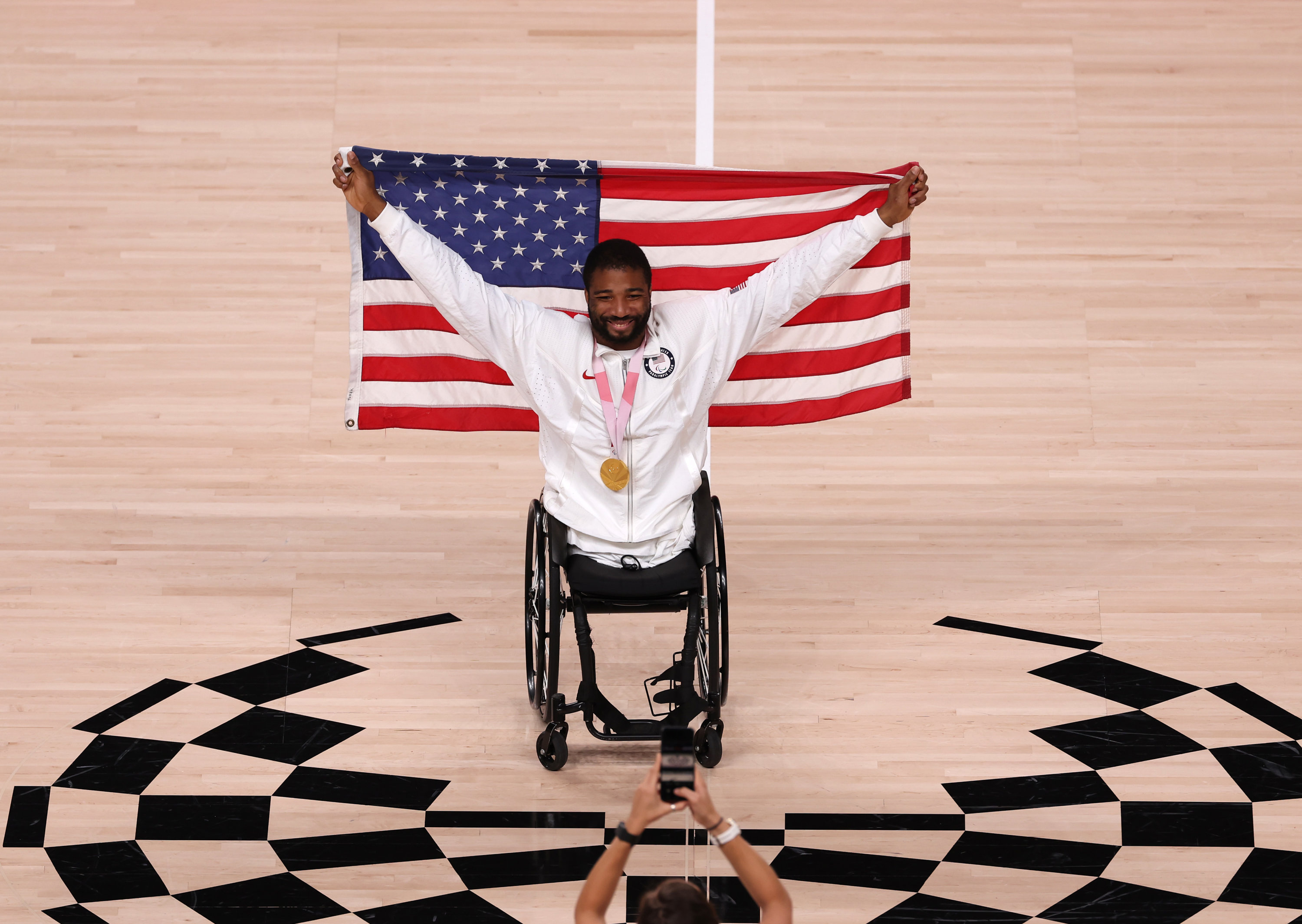
Basketball
2012 London Games, 2016 Rio Games, 2020 Tokyo Games
The pyramid of pictures lived on the wall above Trevon Jenifer’s college-dorm bed, mapping out his goals as a wheelchair basketball player. “The bottom row [represented] things like working out six days a week and getting up shots,” Jenifer, 35, says. “The second tier was about making All-American, and another was winning the national title.” Finally, at the top, a photo of a set of Paralympic medals symbolized his sport’s pinnacle: capturing gold for Team USA.
Though Jenifer missed out on a national championship while at Edinboro University in Pennsylvania, he achieved the rest as a two-time All-American and two-time defending Paralympic gold-medalist (with a bronze in 2012 to boot). Now a full-time US Secret Service employee and married father of two, Jenifer will again compete at the Paris Games. He also plays for the National Wheelchair Basketball Association’s Med-Star NRH Punishers, based in the DC area, and squeezes in training on the side, often retreating to the gym to hoist hundreds of shots after dropping off his daughter at soccer practice.
But he’s just as proud of the way his on-court success has impacted others off it.
“Ever since birth, I’ve been stared at because I look different,” says Jenifer, who was born without legs as the result of a congenital amputation. “Now people stare for a completely different reason—because they’re in awe of [the basketball skills] I’m showcasing.
“I feel like it’s my responsibility to break these barriers of thought that individuals with disabilities can’t do things. And to do it on a world stage is a blessing.”
Back to Top
Thea LaFond

Track and Field
2016 Rio Games, 2020 Tokyo Games
As Thea LaFond prepares for her third Olympics in the triple jump, her community in Maryland is supporting her every leap. She lifts weights at her parents’ house, not far from where she lives in Silver Spring. And she trains at the Columbia Cricket & Sports Complex, on a 13-by-155-foot lane that she and her husband rented out to custom-build three running lanes and a jump pit. “They were very patient as we hauled in infinite bags of sand,” LaFond, 30, says of the facility.
The support extends to her alma mater and former workplace at Montgomery County’s John F. Kennedy High School, where she taught special education before leaving in late 2021 to pursue athletics full-time. “I was part of the introductory Hall of Fame class, so my face is still plastered on the wall outside the cafeteria,” she says. “The love is very apparent.”
There’s also love from Dominica, where LaFond was born. Though her family moved to the US when she was five, LaFond will compete for the Caribbean island nation at the Paris Games. Its more than 70,000 residents will be rooting for her to become Dominica’s first-ever Olympic medalist—and enjoying how her success has raised awareness of the country’s existence to others around the track-and-field world.
“I want people to know that it’s Dominica, not the Dominican Republic, and to learn about this gem in the Caribbean,” says LaFond, who in March won gold at the 2024 World Athletics Indoor Championships in Glasgow, the first for her native country at any global meet.
“I’m helping them do it, and that’s the best feeling ever.”
Back to Top
Chioma “Cici” Onyekwere
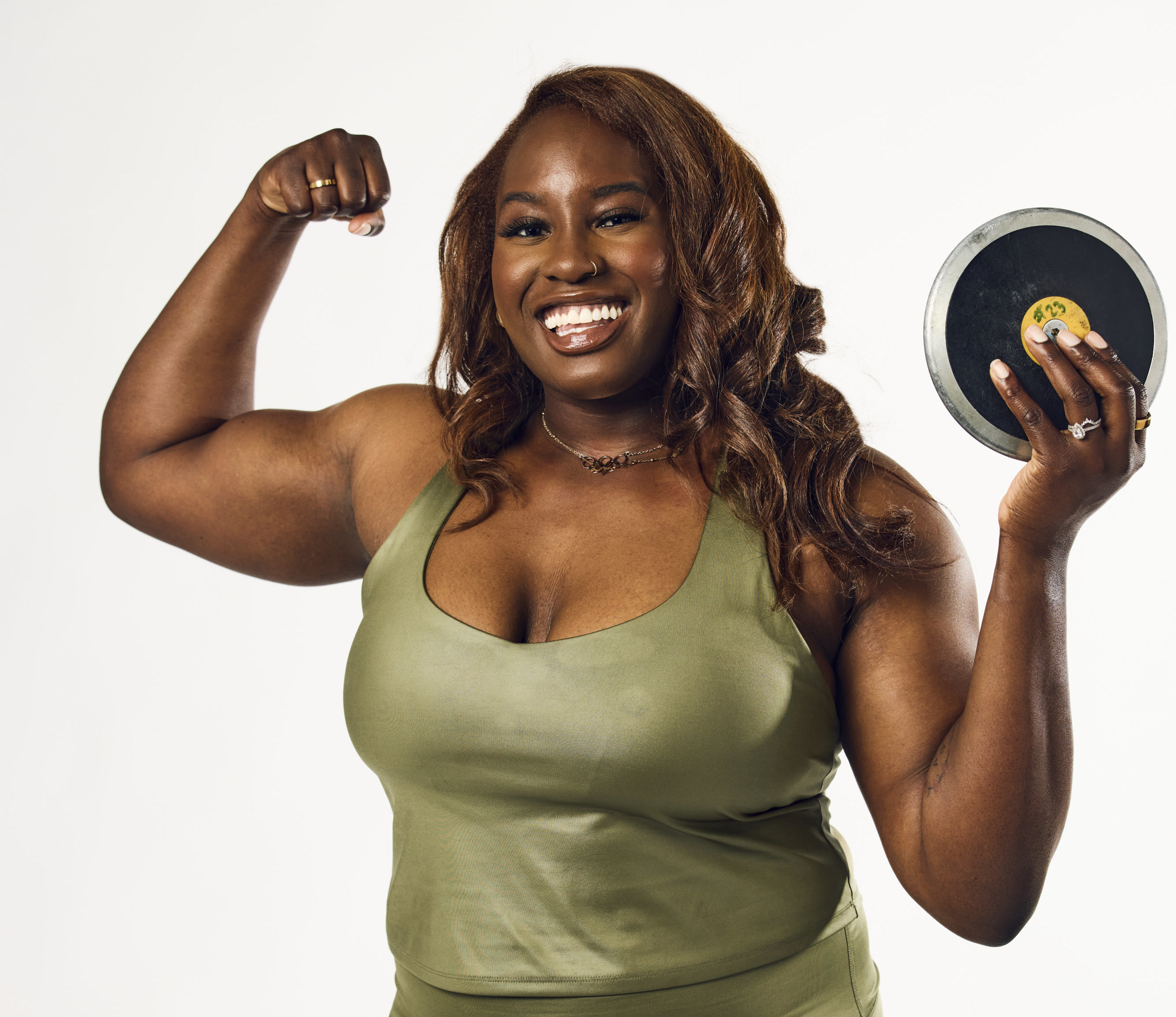
Track and Field
2020 Tokyo Games
When Cici Onyekwere reflects on the Tokyo Olympics, she reaches for words like “heart-broken” and “traumatic” to describe what she experienced. It wasn’t that the discus thrower performed poorly in Tokyo—it was that she never competed at all.
The opportunity was snatched away just days before discus competition began, when Onyekwere and nine other athletes representing Nigeria were ruled ineligible because their national federation had failed to administer the minimum number of no-notice out-of-competition drug tests in the lead-up to the Games. The athletes hadn’t failed any tests, nor were they responsible for test administration. Nevertheless, they paid a high price. “I walked around the Olympic village sobbing,” says Onyekwere, 30, a University of Maryland graduate who grew up in Fairfax after her family moved from Nigeria when she was in third grade. “I wasn’t sure I was going to keep going in the sport.”
Ultimately, she returned stronger than ever, placing first at the 2022 Commonwealth Games—a first for Nigeria in women’s discus—and breaking Africa’s continental discus record in April 2023. Yet, she says, some wounds won’t fully heal until Paris this summer: “A lot of [Nigerian] federation coaches believe that the Commonwealth gold makes up for the pain [from Tokyo]. It doesn’t, because I never had a chance to put my hat in the ring.”
Onyekwere returns to the Washington area whenever her schedule allows, most often training in Loudoun County. In addition to her global discus travels, she works as an automotive engineer for Ford Motor Company, focusing on exterior lighting. Her colleagues are planning a watch party for her long-awaited, hard-earned Olympic debut. “I have T-shirts that say ‘Team Onyekwere,’ so they’re all kitted up in those.”
Back to Top
Rudy Winkler
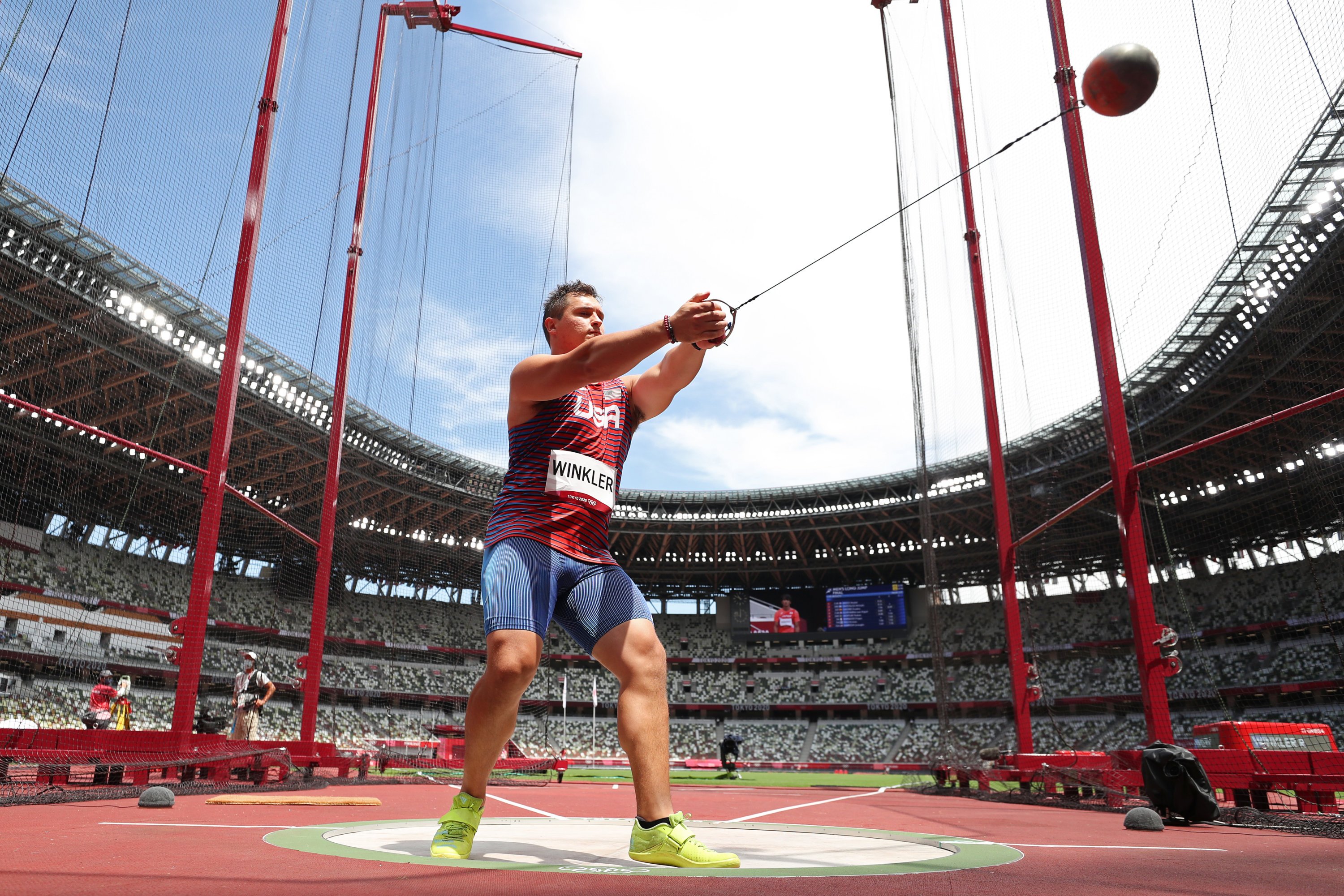
Track and Field
2016 Rio Games, 2020 Tokyo Games
Not long after Rudy Winkler first moved to Washington in fall 2022, he hit a psychological wall. “I realized that I wasn’t looking forward to training anymore, that I hadn’t for a while,” Winkler, 29, says. “It was more just like a job to me.”
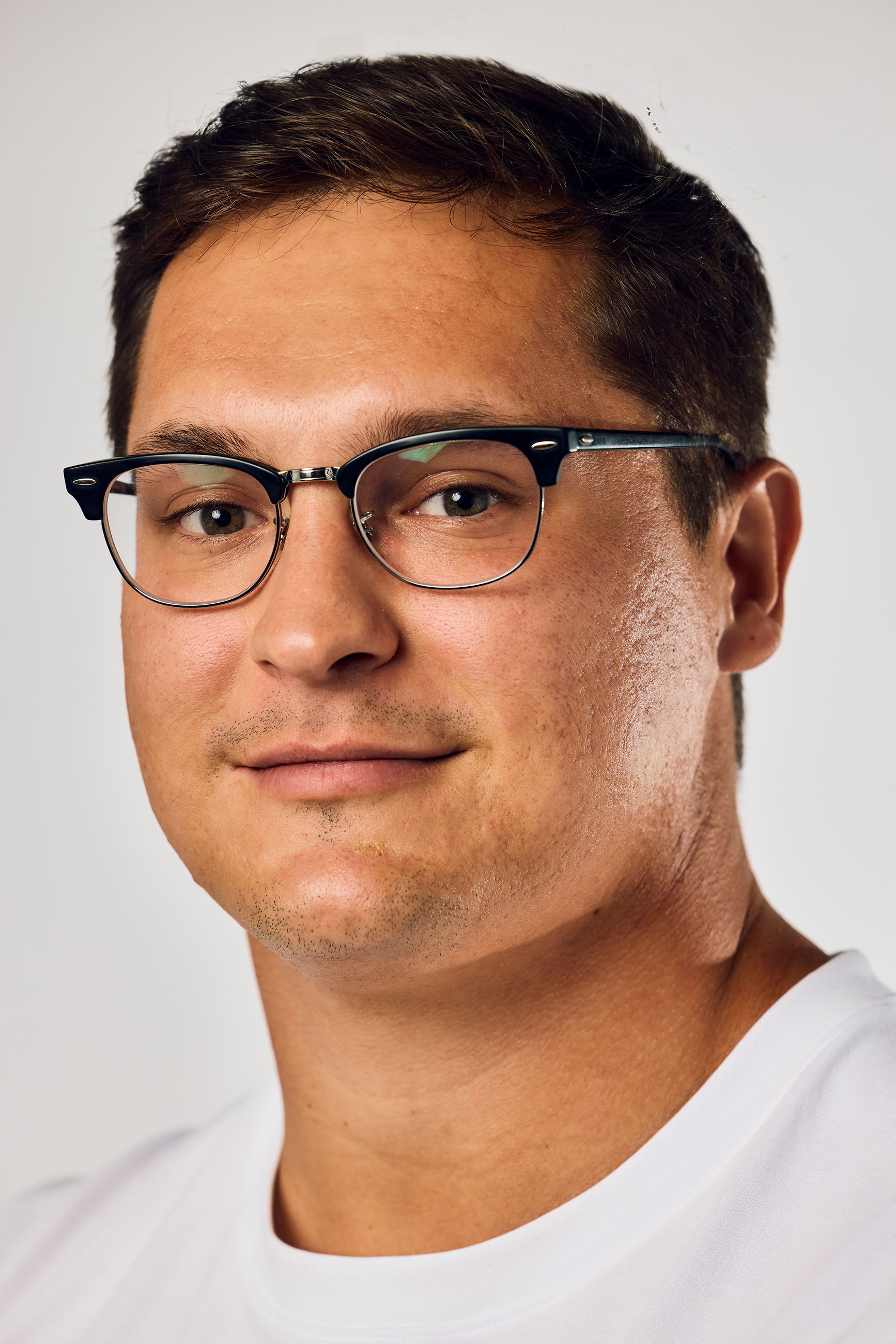
Looking to rekindle his passion, he started entering more international competitions, which he calls “my favorite part of the sport.” Winkler also began focusing on “mindfulness and meditations” with his sports psychologist in their virtual sessions. The results? “Physically and mentally, I’m probably in the best place I’ve ever been in my career,” he says. “I’m finding that joy I first had when I started out in high school.”
Ranked number four in the world as of late May, the current American hammer-throw record holder trains at the University of Maryland. He hasn’t lived up to his own high standards in his two Olympic appearances, finishing 18th while still in college at Cornell in 2016 and seventh in 2021. “I appreciate those trips for what they are, but looking back I feel like there are more negatives than positives,” he says.
Heading into Paris, however, Winkler feels nothing but enthusiasm. “I used to feel anxiety before big meets, because I know what I’m capable of, and the only thing I really have left to do is get a medal at one,” he says. “I’m excited for it.”
Back to Top
Troy Isley
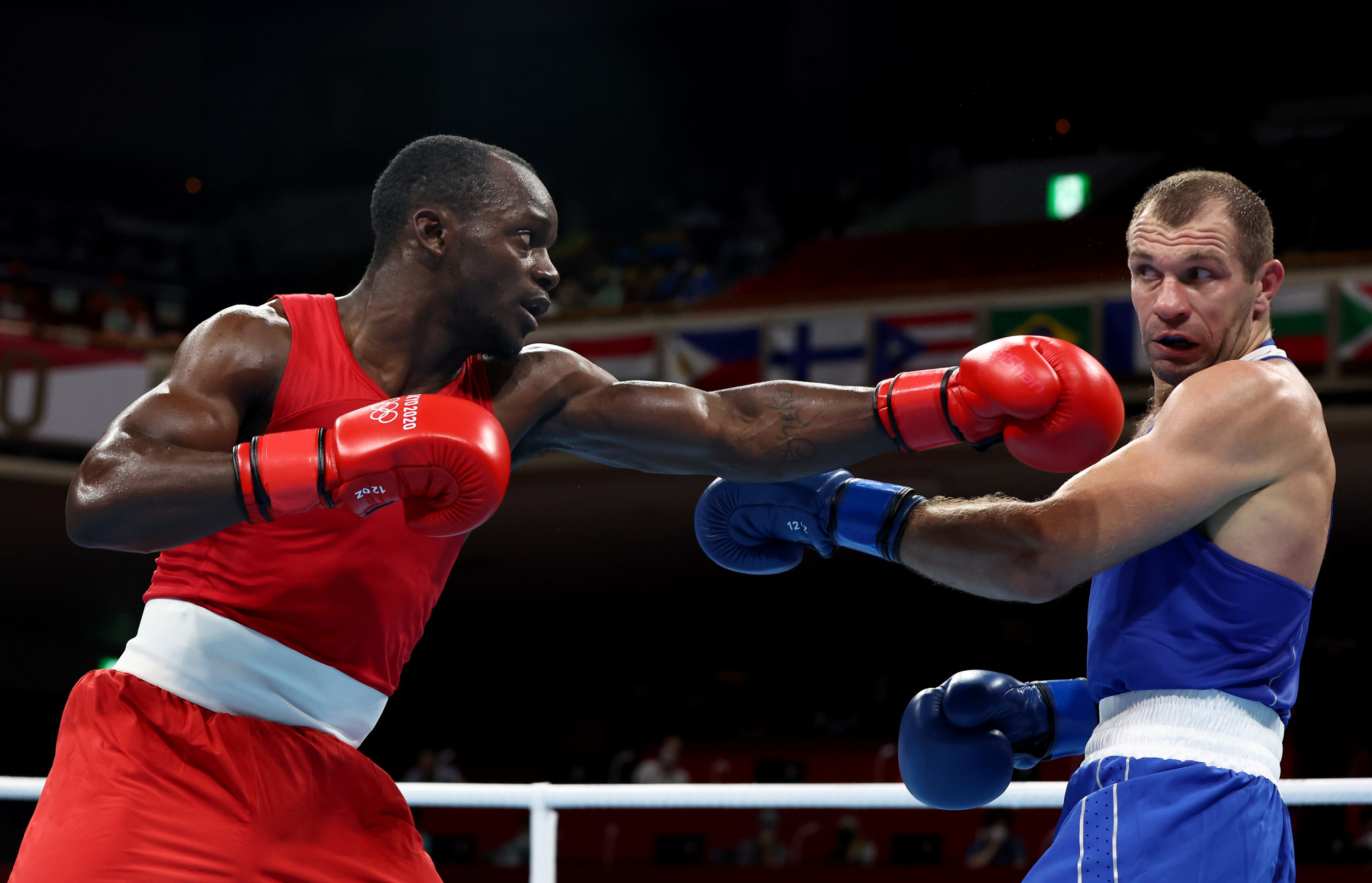
Boxing
2020 Tokyo Games
The homecoming party was held in Old Town Alexandria, at the same boxing club where the local hero had trained since his youth. That evening, as giant Olympic rings made out of hundreds of balloons decorated the gym floor, Troy Isley sat at a table fielding autograph requests from countless fans of all ages and basking in their love.
“I felt like I could’ve had a parade,” Isley, 25, says. “But I didn’t win a medal, so I was okay with that.”
After winning his opening bout in Tokyo by unanimous decision, the T.C. Williams High School graduate narrowly fell in the round of 16 to end his Olympic debut. Still, Isley flew back stateside with plenty of fond memories, notably a starry-eyed encounter with NBA stars and Team USA members Kevin Durant and Damian Lillard at the opening ceremonies.
“Lillard was showing us tapes of him boxing, asking us questions,” Isley says of the Milwaukee Bucks guard. “These are guys I’m watching on TV. It was surreal.”
Isley has springboarded to bigger things in the boxing world since then, relocating his training base to Vegas and racking up a 12–0 professional record with five knockouts as of mid-June. But he still retreats to the DC area to relax after every fight, checking out Smithsonian museums and shoe-shopping in Georgetown as a self-described “sneakerhead.”
Plus, he’s already taking aim at another celebration across the river in Alexandria.
“Next thing is winning a world title,” Isley says, “so I can get the key to the city.”
Triple-jump world indoor champion Thea LaFond first came to Washington as a child, when her family relocated from New Jersey for her father’s job with the Department of Agriculture. “I have extremely fond memories of summers on the Mall, meeting him during his lunch break, popping in and out of Smithsonian museums,” LaFond says. “The area is a huge part of who I am and my story.”
LaFond and a number of other former Olympians and Paralympians from the DC area reached the peak of their sports to showcase their talents on the ultimate world stage—and some, like LaFond, will be returning to the Games in Paris this summer. But they also aren’t much different from the rest of us, living and working and groaning about traffic, all while enjoying the city’s charms.
Take Rudy Winkler. A native of upstate New York, the Paris-bound hammer thrower arrived in Washington less than two years ago. He already can rattle off a long list of favorite neighborhoods (Georgetown, Southwest Waterfront), museums (National Portrait Gallery, National Building Museum), and other attractions. “I’ve been getting into kites for some reason, so the [National Mall’s annual Blossom] Kite Festival was the perfect timing for that,” Winkler says.
Even for those whose careers have taken them away, the region frequently pulls them back. Boxer Troy Isley, who now trains out of Las Vegas, returns to DC after his fights, often gathering with his sizable extended family. “I meet, like, five new people every cookout,” he says. “Seeing all my cousins, all my great-aunts—they’re all proud of me that I stuck with it, so that keeps me going.”
While some of these Olympians and Paralympians earned medals, others endured disappointment. Still, they share a common connection to our city. “To be able to make the Olympic team was a surreal feeling,” basketball player Jerami Grant says, “knowing where I started.”
Back to Top
Jerami Grant

Basketball
2020 Tokyo Games
Soon after Jerami Grant won a gold medal with Team USA in the Tokyo Games, the veteran NBA forward headed home to show it off to family and friends. As he watched them pass around the hardware, marveling at its surprising heft, the true weight of his accomplishment sank in.
“Being from the DMV, to be able to bring that back is big,” Grant, 30, says. “It means a lot to me, but I think it means even more for my community. It wasn’t until I saw my mom and my brothers really excited that I was like, ‘Oh, yeah—I was a part of something that will last.’ ”
For Grant, a DeMatha graduate who recently finished his tenth professional season and his second with the Portland Trail Blazers, all roads return to his roots in Prince George’s County, where he still owns a house and lives each off-season. It’s why his Hour Generation Foundation offers tutoring programs, wellness walks, and Thanksgiving turkey drives for under-served people in the region. And it’s why Grant recently dipped into his nearly $110 million career earnings and made “a pretty big investment,” as he describes it, to become a minority owner of DC United.
“It’s every kid’s dream to be able to grow up and win a gold medal and make a bunch of money and give back to the community,” Grant says. “This is the cherry on top, to be able to have part ownership of a team in your area.”
Back to Top
Linda Miller

Rowing
2000 Sydney Games
Nearly a quarter century has passed since Linda Miller and the Team USA women’s eight boat placed sixth at the Sydney Olympics, yet she still can’t bring herself to watch the replay.
“Some people have said, ‘I saw your Olympic race,’ and I’m like, ‘Cool, don’t tell me about it,’ ” Miller, 51, says. “If we hadn’t been expecting to medal, I probably would have been happy and found it all very positive. But it was incredibly disappointing that we underperformed.”
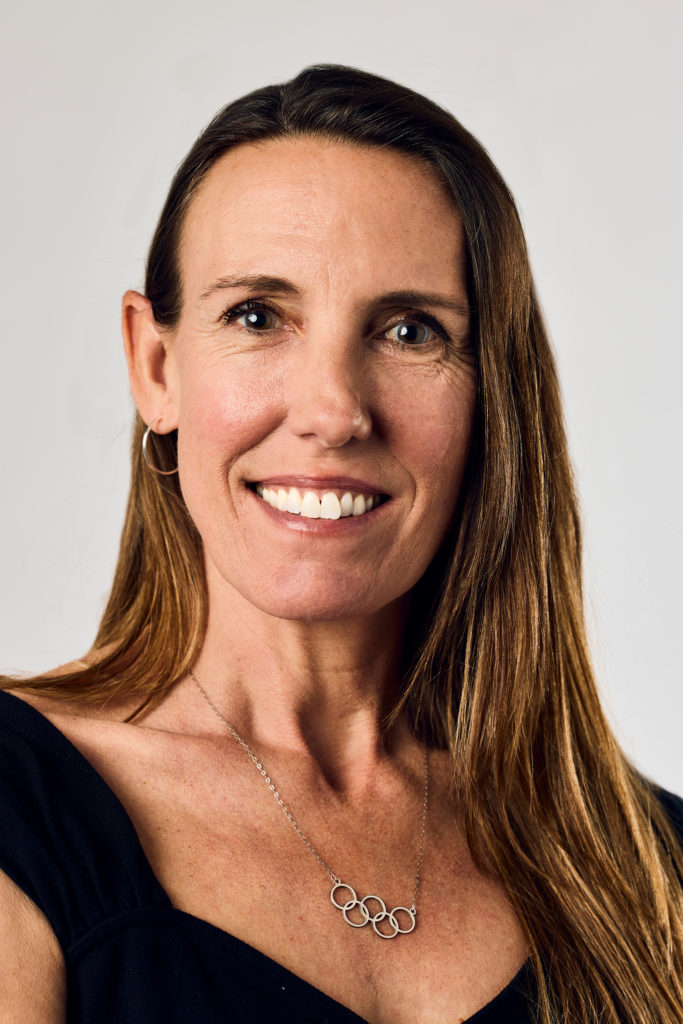
In the immediate after-math, Miller fully intended to return for the 2004 Athens Games and “get the medal I didn’t get.” The more she thought about it, though, the more she realized she was driven more by “avenging” her Olympic failure and less because “I love it and this is the thing I want to do most for the next four years.” So she decided to hang up her oars, pivoting to obtain her master’s in public policy at her undergraduate alma mater, George Washington University.
“Ironic that the US women’s eight won silver in Athens and gold in Beijing, London, and Rio,” Miller says with a chuckle. “I guess I just rowed in the wrong year.”
Over time, Miller also came to embrace the Olympic letdown as an “amazing opportunity” to help young athletes process their own defeats, whether it was the boys’ crew team that she coached at DC’s Jackson-Reed High School from 2001-2005 or, more recently, her son during his high school basketball career. “I would be able to talk to them about that feeling, because they knew I understood it better than anybody,” Miller says. “A medal is nice, people are impressed, it’s a thing that sits in your house. But it doesn’t provide a long-lasting way to connect with other humans the way this understanding does.”
These days, the life-long DC-area resident works as a fraud-prevention analyst, recently founding her own government consulting firm, and continues to row singles and doubles at Georgetown’s Potomac Boat Club, where Supreme Court justice Neil Gorsuch is also a member. The frustration of her sixth-place finish has faded, replaced by perspective and pride.
“My son wore this Olympic T-shirt that I got [in Sydney] until there were holes in it,” Miller says. “It’s hard to be cool to your teenage kid. But I can reliably be cool every four years.”
Back to Top
Chantae McMillan

Track and Field
2012 London Games
Chantae McMillan characterizes her lone Olympic experience as an “unknown story.” Due to a sudden illness that struck right before the last event in the modern heptathlon at the London Games, she was unable to warm up for the 800-meter dash and finished in 27th place.
Four years later, she failed to qualify for a spot on Team USA for Rio, finishing fifth at the US track-and-field trials—yet came away with a feeling of fulfillment. “It was my best score ever, so it was an amazing moment,” McMillan, 36, says. “I thought my career was over, and I was happy with what I did.”
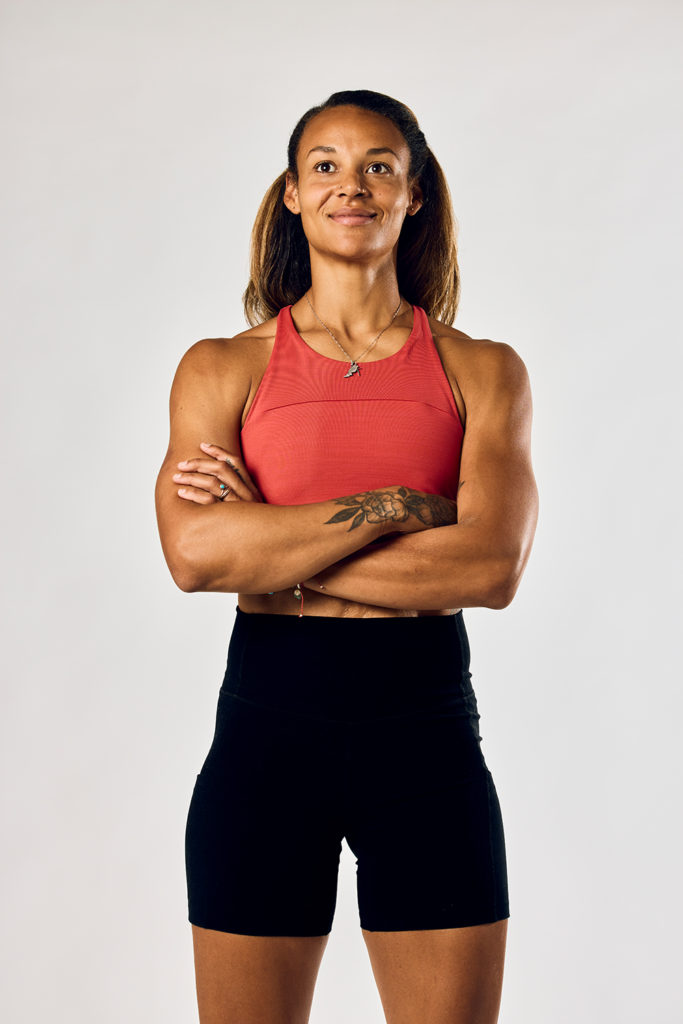
She never fully stepped away, narrowing her focus to just one of the heptathlon’s seven individual events and finishing eighth in javelin at the US trials before the Tokyo Games. Then last summer—seven years after McMillan last competed in the heptathlon at any meet—the stars aligned for a comeback when one of her former coaches got a job at the nearby University of Maryland. “I was like, ‘We have to see what’s left in the tank,’ ” she says.
Though her comeback attempt ultimately fell short of qualifying for the Paris Games, McMillan knows what she wants to do next: “I love the technical aspect of track and field. I want to coach, give back to kids.” At home, McMillan—whose husband, Devon Langhorst, works as a US Army helicopter pilot out of Fort Belvoir—raises two young sons. On training days, she drops the younger boy off with a sitter and often takes the older one with her.
“It’s six days a week, three to four hours of work daily, but some days it’s spread out because something’s happening with the kids,” she says. “It doesn’t sound that dramatic, but it’s hectic.”
Back to Top
Trevon Jenifer

Basketball
2012 London Games, 2016 Rio Games, 2020 Tokyo Games
The pyramid of pictures lived on the wall above Trevon Jenifer’s college-dorm bed, mapping out his goals as a wheelchair basketball player. “The bottom row [represented] things like working out six days a week and getting up shots,” Jenifer, 35, says. “The second tier was about making All-American, and another was winning the national title.” Finally, at the top, a photo of a set of Paralympic medals symbolized his sport’s pinnacle: capturing gold for Team USA.
Though Jenifer missed out on a national championship while at Edinboro University in Pennsylvania, he achieved the rest as a two-time All-American and two-time defending Paralympic gold-medalist (with a bronze in 2012 to boot). Now a full-time US Secret Service employee and married father of two, Jenifer will again compete at the Paris Games. He also plays for the National Wheelchair Basketball Association’s Med-Star NRH Punishers, based in the DC area, and squeezes in training on the side, often retreating to the gym to hoist hundreds of shots after dropping off his daughter at soccer practice.
But he’s just as proud of the way his on-court success has impacted others off it.
“Ever since birth, I’ve been stared at because I look different,” says Jenifer, who was born without legs as the result of a congenital amputation. “Now people stare for a completely different reason—because they’re in awe of [the basketball skills] I’m showcasing.
“I feel like it’s my responsibility to break these barriers of thought that individuals with disabilities can’t do things. And to do it on a world stage is a blessing.”
Back to Top
Thea LaFond

Track and Field
2016 Rio Games, 2020 Tokyo Games
As Thea LaFond prepares for her third Olympics in the triple jump, her community in Maryland is supporting her every leap. She lifts weights at her parents’ house, not far from where she lives in Silver Spring. And she trains at the Columbia Cricket & Sports Complex, on a 13-by-155-foot lane that she and her husband rented out to custom-build three running lanes and a jump pit. “They were very patient as we hauled in infinite bags of sand,” LaFond, 30, says of the facility.
The support extends to her alma mater and former workplace at Montgomery County’s John F. Kennedy High School, where she taught special education before leaving in late 2021 to pursue athletics full-time. “I was part of the introductory Hall of Fame class, so my face is still plastered on the wall outside the cafeteria,” she says. “The love is very apparent.”
There’s also love from Dominica, where LaFond was born. Though her family moved to the US when she was five, LaFond will compete for the Caribbean island nation at the Paris Games. Its more than 70,000 residents will be rooting for her to become Dominica’s first-ever Olympic medalist—and enjoying how her success has raised awareness of the country’s existence to others around the track-and-field world.
“I want people to know that it’s Dominica, not the Dominican Republic, and to learn about this gem in the Caribbean,” says LaFond, who in March won gold at the 2024 World Athletics Indoor Championships in Glasgow, the first for her native country at any global meet.
“I’m helping them do it, and that’s the best feeling ever.”
Back to Top
Chioma “Cici” Onyekwere

Track and Field
2020 Tokyo Games
When Cici Onyekwere reflects on the Tokyo Olympics, she reaches for words like “heart-broken” and “traumatic” to describe what she experienced. It wasn’t that the discus thrower performed poorly in Tokyo—it was that she never competed at all.
The opportunity was snatched away just days before discus competition began, when Onyekwere and nine other athletes representing Nigeria were ruled ineligible because their national federation had failed to administer the minimum number of no-notice out-of-competition drug tests in the lead-up to the Games. The athletes hadn’t failed any tests, nor were they responsible for test administration. Nevertheless, they paid a high price. “I walked around the Olympic village sobbing,” says Onyekwere, 30, a University of Maryland graduate who grew up in Fairfax after her family moved from Nigeria when she was in third grade. “I wasn’t sure I was going to keep going in the sport.”
Ultimately, she returned stronger than ever, placing first at the 2022 Commonwealth Games—a first for Nigeria in women’s discus—and breaking Africa’s continental discus record in April 2023. Yet, she says, some wounds won’t fully heal until Paris this summer: “A lot of [Nigerian] federation coaches believe that the Commonwealth gold makes up for the pain [from Tokyo]. It doesn’t, because I never had a chance to put my hat in the ring.”
Onyekwere returns to the Washington area whenever her schedule allows, most often training in Loudoun County. In addition to her global discus travels, she works as an automotive engineer for Ford Motor Company, focusing on exterior lighting. Her colleagues are planning a watch party for her long-awaited, hard-earned Olympic debut. “I have T-shirts that say ‘Team Onyekwere,’ so they’re all kitted up in those.”
Back to Top
Rudy Winkler

Track and Field
2016 Rio Games, 2020 Tokyo Games
Not long after Rudy Winkler first moved to Washington in fall 2022, he hit a psychological wall. “I realized that I wasn’t looking forward to training anymore, that I hadn’t for a while,” Winkler, 29, says. “It was more just like a job to me.”

Looking to rekindle his passion, he started entering more international competitions, which he calls “my favorite part of the sport.” Winkler also began focusing on “mindfulness and meditations” with his sports psychologist in their virtual sessions. The results? “Physically and mentally, I’m probably in the best place I’ve ever been in my career,” he says. “I’m finding that joy I first had when I started out in high school.”
Ranked number four in the world as of late May, the current American hammer-throw record holder trains at the University of Maryland. He hasn’t lived up to his own high standards in his two Olympic appearances, finishing 18th while still in college at Cornell in 2016 and seventh in 2021. “I appreciate those trips for what they are, but looking back I feel like there are more negatives than positives,” he says.
Heading into Paris, however, Winkler feels nothing but enthusiasm. “I used to feel anxiety before big meets, because I know what I’m capable of, and the only thing I really have left to do is get a medal at one,” he says. “I’m excited for it.”
Back to Top
Troy Isley

Boxing
2020 Tokyo Games
The homecoming party was held in Old Town Alexandria, at the same boxing club where the local hero had trained since his youth. That evening, as giant Olympic rings made out of hundreds of balloons decorated the gym floor, Troy Isley sat at a table fielding autograph requests from countless fans of all ages and basking in their love.
“I felt like I could’ve had a parade,” Isley, 25, says. “But I didn’t win a medal, so I was okay with that.”
After winning his opening bout in Tokyo by unanimous decision, the T.C. Williams High School graduate narrowly fell in the round of 16 to end his Olympic debut. Still, Isley flew back stateside with plenty of fond memories, notably a starry-eyed encounter with NBA stars and Team USA members Kevin Durant and Damian Lillard at the opening ceremonies.
“Lillard was showing us tapes of him boxing, asking us questions,” Isley says of the Milwaukee Bucks guard. “These are guys I’m watching on TV. It was surreal.”
Isley has springboarded to bigger things in the boxing world since then, relocating his training base to Vegas and racking up a 12–0 professional record with five knockouts as of mid-June. But he still retreats to the DC area to relax after every fight, checking out Smithsonian museums and shoe-shopping in Georgetown as a self-described “sneakerhead.”
Plus, he’s already taking aim at another celebration across the river in Alexandria.
“Next thing is winning a world title,” Isley says, “so I can get the key to the city.”
This article appears in the July 2024 issue of Washingtonian.
